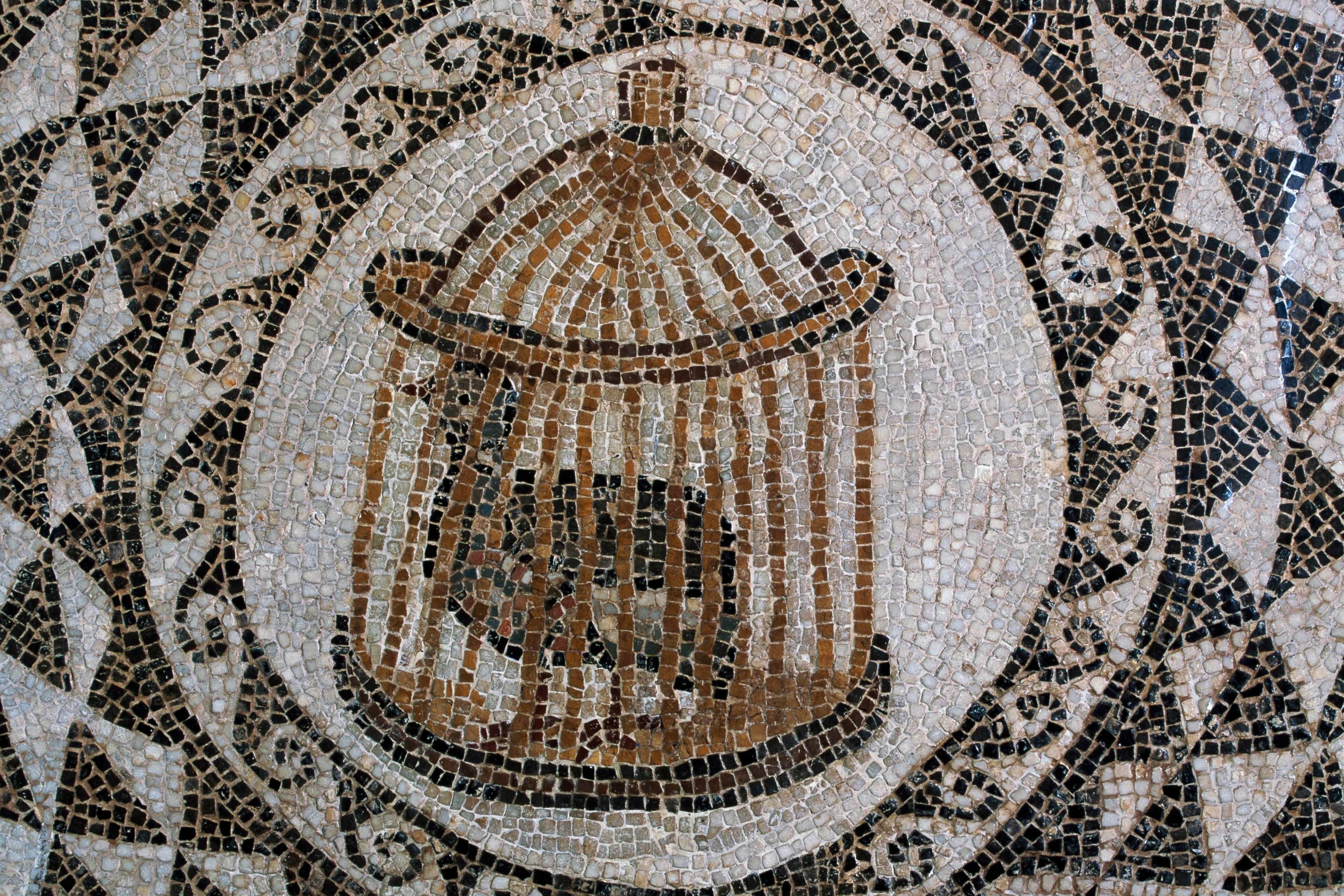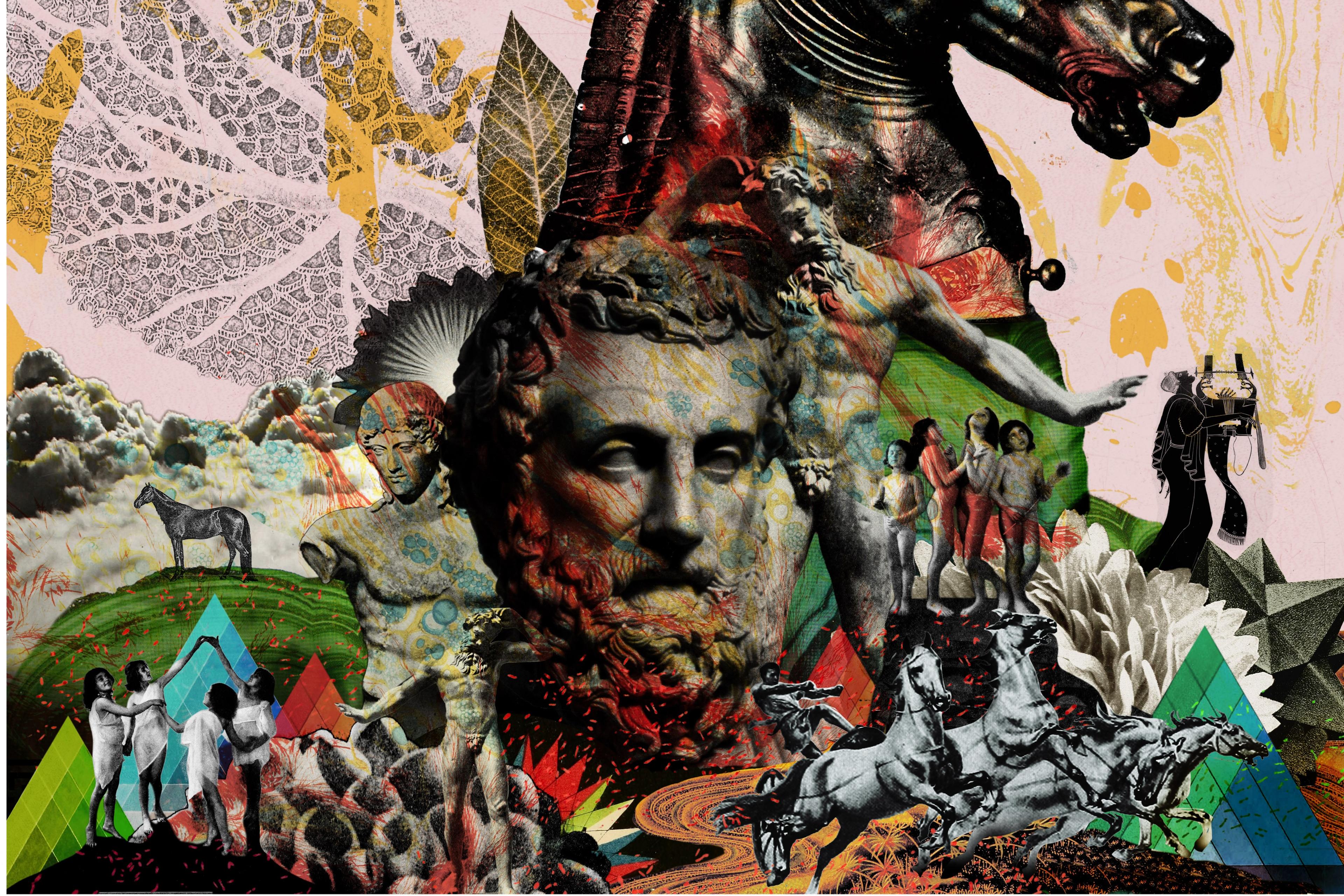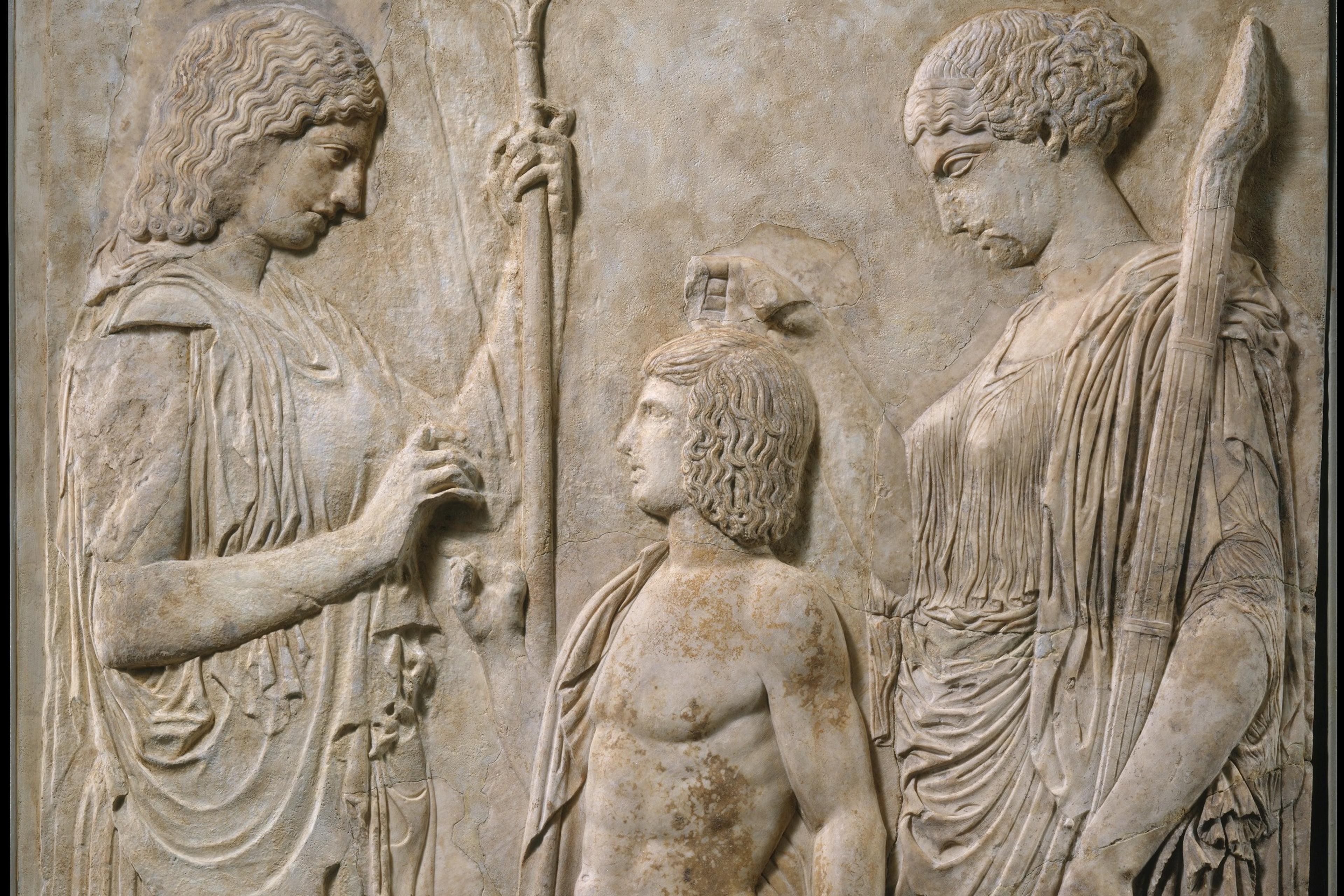In our world of instant gratification – from Netflix binges to social media likes to online pornography – it’s worth asking: does feeling good always mean living well? Plato foresaw the dangers of confusing pleasure with flourishing. His insights compel us to reconsider our uncritical embrace of pleasure and question whether a truly good life might require more than simply feeling good. More particularly, Plato provides a powerful conceptual framework for distinguishing pleasures that are worth incorporating into one’s life from those that aren’t.
Our culture’s obsession with pleasure jibes nicely with a popular psychological and philosophical way of thinking about human happiness: that a good life is simply a pleasurable life. This idea – known to philosophers as hedonism, from the Greek hêdonê (pleasure) – holds that human wellbeing consists solely in the presence of positive experiences and the absence of negative ones. Part of hedonism’s appeal lies in what we might call the authority of pleasure and pain. Anyone who has felt joy or suffering knows how tightly these experiences are bound up with what is good for us. Backaches, heartbreak, existential crises and lonely nights spent doom-scrolling on social media are bad because they feel bad; orgasms, triple chocolate cookies, downhill mountain biking and Beethoven’s late string quartets are good because they feel good.
From this insight, it’s a short – and tempting – step to conclude that the quality of our experience, whether pleasurable or painful, is all that matters for a life well lived. And again, this is intuitive: our subjective sense of how well our life is going seems closely tied to how good or bad we feel. It’s difficult, perhaps even impossible, to imagine a time when your life was going badly, yet you felt great – or when you were suffering all the time, yet your life was going well.
Ancient Greek and Roman philosophy often addressed practical concerns about how to live well, and philosophers were particularly interested in understanding the nature and value of pleasure and its relationship to eudaimonia (flourishing). Among these ancient explorations, Plato’s treatment stands out for its originality and depth.
His thinking about pleasure is easily misunderstood, though, because it seems to pull in different directions. Going from a rather superficial reading of the Phaedo – the dialogue which describes Socrates’ last moments – Friedrich Nietzsche depicted Plato as a Christian avant la lettre who advocated far-reaching abstention from all pleasure. In a similar vein, the 20th-century ethicist Richard Hare described Plato as a ‘stern and ascetic moralist’, someone who ‘would have been at home in a Zen Buddhist monastery, or even in Egypt with the desert fathers.’
Misleading pleasure causes trouble in our attempt to live a life that truly matters
To be sure, the Phaedo is highly critical of pleasure and even flirts with the idea that true happiness lies in separating one’s soul from one’s body (‘the practice of death’). Yet Plato’s account of pleasure is more complex than this ascetic reading suggests. In the Republic, for instance, Plato argues that the psychological integration underlying true happiness is incredibly pleasurable and joyful. And even in the Phaedo, Socrates tells his pupils that there is no reason to distance themselves from the more elevated forms of pleasure like the pleasures of contemplation, thus anticipating John Stuart Mill’s distinction between lower and higher pleasures, a distinction later picked up by positive and humanistic psychologists like Mihaly Csikszentmihalyi, Martin Seligman and Abraham Maslow.
The key to unlocking Plato’s views on pleasure lies in understanding that, for him, pleasure is dangerous because it is intimately tied up with deception and illusion. When left unchecked and unbound by our reflective and critical capacities, pleasure tends to lead us astray with beguiling but false appearances, cutting us off from what is in fact going on in the world beyond our heads. As the allegory of the cave has it in the Republic, ‘feasting, greed, and other such pleasures’ mess up our ability to see clearly and keep us trapped in a dream-like, clouded state of consciousness where we are unable to make contact with what is happening out there. Pleasure as such is not the problem, then, it is misleading pleasure that causes trouble in our attempt to live a life that truly matters.
To get Plato’s ideas about pleasure and illusion in view, we need to take a step back. A key principle in Platonic hedonic theory is that before we can assess the value of something, we must first examine its nature by giving a rational explanation (a logos) of the thing’s essence or nature (its ousia). Although this principle seems reasonable, many hedonists tend to rush into asserting the ultimate value of pleasure without spending time closely analysing what pleasure actually is. In doing so, they treat pleasure ‘as if [it] were a quite unproblematic concept’, as Elizabeth Anscombe would later remark.
Untutored intuition tells us that pleasure is a simple, raw, rather primitive feeling or sensation – some kind of ‘thoughtless natural energy’, to borrow a label from Martha Nussbaum – comparable to a sneeze, an itch, a tickle, an orgasm, the burn of spicy food on your tongue or the prickly sensation of a new woollen sweater. Plato, by contrast, argues that pleasure is not simple and dumb, but complex and intelligent – more like beliefs and perceptions rather than mere sensations.
In the Philebus – where Plato tries to dismantle hedonism, while also developing a blueprint of the best possible life – he develops this suggestion by claiming that, like our beliefs and perceptions, pleasure should be understood as what contemporary philosophers call a representational attitude. Like other representational attitudes, and unlike brute sensations, our pleasures are about something other than themselves: they are in the business of depicting or representing the world.
In our culture of instant gratification, distinguishing real from deceptive and distorted pleasure has never been more urgent
This is obvious when it comes to belief: my belief that Amsterdam is the capital of the Netherlands represents a certain state of affairs – that Amsterdam is the capital of the Netherlands – and it counts as a true belief because it represents the world accurately. Plato suggests something analogous is also going on in the case of pleasure. Suppose I take pleasure in the fact that I have arrived in Australia after a long and tiring flight, although I’m actually in Austria. In that case, my pleasure implies a certain state of affairs – that I am in Australia – but it misrepresents what is actually going on, depicting the world incorrectly.
One way to capture this idea is to say that pleasure picks out something (an object or state of affairs) in the world – it has a target. However, this is only one part of the story. For something to count as a pleasure, it also requires an evaluative component in addition to the informational component – a pleasure does not just pick out a target, it also paints this target in a positive light and represents it as something good, something important, something tied up with my cares and concerns, and conducive to my flourishing. When we experience pleasure, we appraise its object positively and see it as affecting us, and our wellbeing, in a positive way. As Kent Berridge, a prominent pleasure researcher, puts it, pleasure is a ‘niceness gloss painted upon’ the thing we are enjoying.
This evaluative cognitive element is needed because one and the same object or state of affairs could become a target of different types of affective experience – displeasures as well as pleasures – depending on one’s evaluation of it. A vegan’s disgust represents a steak as something revolting and bad, while a carnivore’s gustatory pleasure represents the very same steak as something yummy and good. It’s the evaluation that’s doing the heavy lifting here and that turns the affective experience into the pleasure or displeasure it is, even though both affective experiences have the exact same target.
Plato believes, then, that our pleasures count as a kind of openness to the world: to experience a pleasure is for the world to appear a certain way. With this representationalist account of pleasure in view, it becomes easy to see how pleasure can be misleading. Whenever there is a fundamental disconnect between the representational content of your pleasure and the world out there, your perspective is foggy and distorted – you are not seeing clearly. This Platonic insight matters profoundly today because in our culture of instant gratification, distinguishing real from deceptive and distorted pleasure has never been more urgent.
Such distortion can occur along either the informational or evaluative dimensions of pleasure. For example, if I am elated by my purchase of the newest iPhone, my pleasure may deceive me if the phone turns out to be a cheap counterfeit (informational error) or if I later realise, upon reflection and reading relevant psychological research, that obsessing over shiny material possessions does not really foster wellbeing (evaluative error). In both cases, my pleasure separates me from reality, and I live in what Iris Murdoch aptly calls a ‘private dream world’ – severed from what is going on around me.
What makes pleasure especially tricky is that, much like belief, it necessarily represents its content as true, making its errors irresistible to immediate detection. Erroneous beliefs and deceptive pleasures do not survive introspective, first-person awareness. Once it recognises a belief or pleasure as false, our mind immediately cleans up its act and abandons the belief or pleasure at hand. This makes misleading pleasures particularly elusive: by their nature, illusions cannot be recognised as such while you’re caught up in them. Only afterward, through reflection, can you see them clearly for what they are – false.
Even more worrying, perhaps, is the fact that pleasure can make us intellectually sloppy. For one, the intensity of pleasure eats up much of our cognitive resources, leaving little mental energy for scrutinising whether our pleasures align with reality. More than that, when something feels good, we tend to grow complacent and become less inclined to question its epistemic credentials (think of a phenomenon like confirmation bias). Whenever we experience pleasure, to borrow a metaphor from Sigmund Freud, it’s as if ‘the watchman over our mental life were put out of action by a drug’.
Plato’s take on pleasure’s deceptive tendencies obviously has consequences for how we think about the connection between pleasure and the good life. The easiest way to make trouble for hedonism is to point to displeasures that are conducive to wellbeing or to pleasures that do not contribute to wellbeing. Pointing out that a good life involves painful experiences like heartbreak and grief, despite how horrible they feel, would be an instance of the first move. If we could take a pill that would eradicate our grief after the death of a loved one, very few people would be willing to take that pill – the hedonistic imperative notwithstanding.
Drawing attention to misleading pleasure is an example of the second move: it shows that some pleasures conflict with genuine happiness. If our pleasures aim to supply us with a fragment of the world – such that they can be representationally false or misleading – then certain pleasures, no matter how good they feel, don’t belong in a well-lived life – the hedonistic imperative notwithstanding. Put differently, we don’t just want to experience any pleasure, we want our pleasures to get it right by latching on to the world. They should be truthful, not deceptive. When it comes to wellbeing or happiness, then, contact with reality matters as much as the quality of our experience.
If Plato is right, our contemporary obsession with feeling good might be fundamentally misguided. In a culture relentlessly chasing dopamine highs, we risk becoming detached from reality, losing sight of what makes life genuinely meaningful. Pleasure matters – but a life truly worth living demands pleasures rooted in truth, not in illusions.








